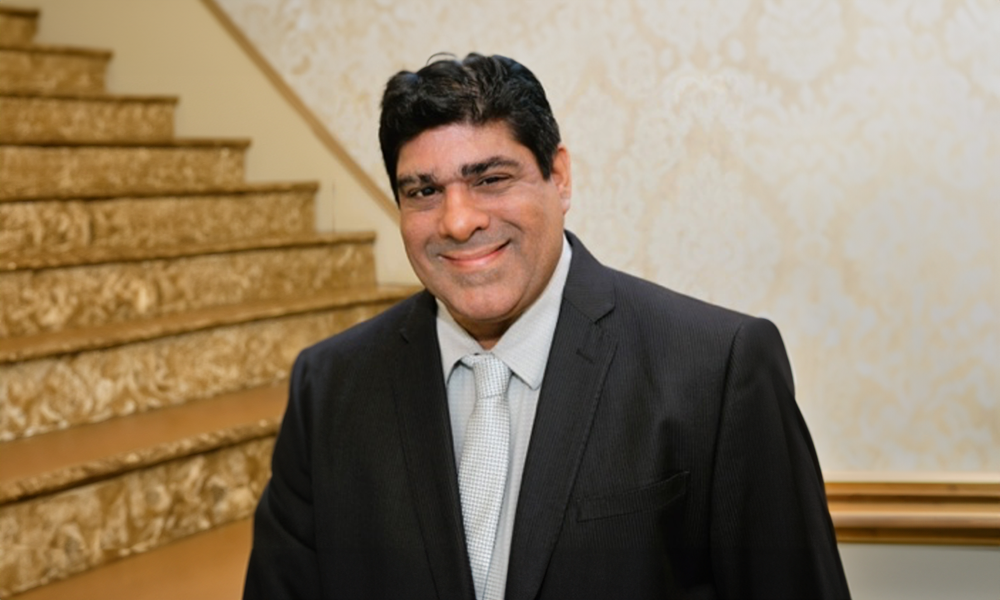Although the idea has gained traction among lawmakers, Massachusetts residents take a dim view of lowering the voting age from 18 to 16, according to the latest survey from the Western New England University Polling Institute.
A telephone survey of 495 adults found that only 29 percent somewhat or strongly support allowing 16- and 17-year-olds to vote in elections for president and Congress, while 65 percent somewhat or strongly oppose the idea. Another six percent said they neither support nor oppose lowering the voting age for national elections, or were unsure of their views.
The survey found higher support for allowing 16- and 17-year-olds to vote in local elections in Massachusetts, with 42 percent somewhat or strongly supporting the idea, and 52 percent somewhat or strongly opposed. The margin of error for the sample of 495 adults is plus or minus four percentage points.
The survey, conducted April 9-27, found higher levels of support for other forms of civic engagement involving teenagers:
- Sixty-nine percent of adults said they somewhat or strongly supported recent protests involving high school students walking out of classes to voice their concerns about climate change. Only 27 percent of those surveyed said they somewhat or strongly opposed the walkouts.
- More than three-quarters of adults – 77 percent – said they somewhat or strongly support high schools requiring students to complete a minimum number of volunteer community service hours, while 15 percent somewhat or strongly oppose the idea.
"The survey results indicate that adults, by large margins, endorse some forms of civic engagement involving teens," said Tim Vercellotti, director of the Polling Institute and a professor of political science at Western New England University. "Adults back student protests about climate change and they support community service requirements for graduation. But they draw the line at extending the vote to 16- and 17-year-olds as part of young people's participation in civic life."
Proposals to lower the voting age to 16 have been floated in Congress and in the Massachusetts state legislature. U.S. Rep. Ayanna Pressley, a Democrat from Boston, introduced an amendment in the U.S. House of Representatives that would have lowered the voting age to 16 for national elections as part of a package of electoral reforms. The House defeated the amendment in early March. A bill that would allow cities and towns in Massachusetts to lower the voting age to 16 for local elections is pending before a joint state House-Senate committee on election laws.
Supporters of lowering the voting age argue that 16- and 17-year-olds are holding down jobs, paying taxes and driving, and therefore are affected by public policies and should have a voice in choosing their elected officials. Opponents contend that 16- and 17-year-olds lack the knowledge and maturity to vote in elections.
Participants in the Polling Institute survey articulated some of those arguments in explaining their positions on the issue. Respondents who said they supported or opposed lowering the voting age to 16 for national elections received a follow-up question asking them to state, in their own words, the top reason for their view. Polling Institute interviewers and staff then categorized the responses.
Among supporters of lowering the voting age, the most common rationale for that view was that 16- and 17-year-olds are mature enough to vote (21 percent), followed by: "they have valid views and opinions" (19 percent), "elections are about their future" (17 percent), and "16- and 17-year olds are part of society" (14 percent). The most frequent reason offered by opponents was, "they are not mature enough to vote at 16 or 17" (51 percent), followed by "they do not have enough knowledge about candidates and issues" (22 percent), and "16- and 17-year-olds do not have enough life experience to vote" (17 percent).
Opposition to lowering the voting age for national elections was the dominant view across all demographic and partisan groups in the survey, but the size of the margin between oppose and support varied considerably. Among registered voters, 48 percent of Democrats opposed the idea, while 41 percent supported it. Republican voters were almost unanimous in their opposition, with 89 percent opposing the proposal and only 11 percent backing it.
Negative views increased with age. Among adults ages 18 to 39, 53 percent were opposed and 43 percent were in favor. In contrast, 74 percent of adults age 65 and older opposed the idea and only 19 percent were in favor.
The age at which respondents said they first cast a vote also was related to levels of support or opposition. Support was somewhat higher (29 percent) among those who said they had voted for the first time at age 18, 19, or 20, compared to those who had voted for the first time at age 21 or older (16 percent).
Opposition increased with education level. Among survey participants who had a high school diploma or less, 54 percent were opposed and 46 percent were in favor. Nearly two-thirds of college graduates – 64 percent – were opposed and 28 percent supported lowering the national voting age.
Views varied slightly between parents of teens ages 13 to 18 and other participants in the survey, with 36 percent of those parents supporting the idea compared to 28 percent among the remainder of the sample.
The gap between support and opposition was considerably smaller when it came to lowering the voting age to 16 for local elections in Massachusetts, with 52 percent of adults opposed and 42 percent in favor. A majority of Democrats – 55 percent – somewhat or strongly supported the idea, and 33 percent were somewhat or strongly opposed. Republican voters' views were consistent with their sentiments about changing the national voting age, with 89 percent somewhat or strongly opposing lowering the voting age for local elections and only 11 percent somewhat or strongly supporting the change.
As with the national proposal, views on lowering the voting age for local elections varied significantly by age. Sixty percent of adults ages 18 to 39 backed lowering the voting age to 16 for local elections, compared to 27 percent of adults ages 65 and older. The age at which a respondent first voted in an election also was associated with differing views on the issue. Among survey participants who recalled casting their first ballots at ages 18 through 20, 42 percent supported lowering the voting age for local elections, while 52 percent were opposed. Among respondents who recalled casting their first ballot at age 21 or older, only 25 percent supported lowering the voting age for local elections, while 66 percent opposed the idea.
Vercellotti said that it was difficult to determine from the data why, in general, voters were more supportive of lowering the voting age for local elections as opposed to national elections. He speculated that survey participants might view local elections as centering on issues that may be more familiar to teens, such as funding for public schools. "Also, respondents might prefer to leave the decision on lowering the voting age to individual communities, as opposed to making a sweeping change that would affect the entire country," he added.
The survey results were more clear-cut for two other forms of youth civic engagement: recent school walkouts to express concerns about climate change, and requirements that high school students complete community service hours in order to graduate. Significant majorities backed both practices, with 69 percent of adults supporting the school walkouts and 77 percent backing community service requirements.
Partisan differences still existed on the subject of school walkouts, with 90 percent of Democrats in support compared to 24 percent of Republicans. Nearly two-thirds – 64 percent – of unenrolled voters also supported the climate change protests. Views also varied by gender, with 76 percent of women supporting the walkouts compared to 61 percent of men. Support declined slightly as age increased, with 76 percent of 18- to 39-year-olds backing the walkouts compared to 69 percent of respondents ages 65 and older.
Requiring that high school students complete community service hours won majority support across all partisan and demographic groups. Seventy-eight percent of Democrats, 69 percent of Republicans, and 79 percent of unenrolled voters supported the idea. Support rose somewhat with education, with 70 percent of those with a high school diploma or less backing the idea, compared to 81 percent of college graduates.
The strongest endorsement of requiring community service hours came from parents of teens ages 13 to 18, with 91 percent of parents saying they somewhat or strongly supported the idea. "Parents seem to like the idea of having young people give back to the community as part of their high school experience," Vercellotti said.
METHODOLOGYThe Western New England University Polling Institute conducted a telephone survey using live interviewers April 9 – 27, 2019. Western New England University sponsored and funded the study. The survey sample consists of telephone interviews in English only with 495 adults ages 18 and older drawn from across Massachusetts using a combination of a random sample of listed telephone numbers for households and random-digit-dialing of cell phones. The sample yielded 464 adults who said they are registered to vote in Massachusetts.
Interviewers at the Polling Institute used random samples obtained from Dynata of Shelton, CT. In order to draw a representative sample from the landline numbers, interviewers alternated asking for the youngest adult male or the youngest adult female age 18 or older who was home at the time of the call. Interviewers dialing cell phone numbers interviewed the respondent who answered the cell phone after confirming three things: (1) that the respondent was in a safe setting to complete the survey; (2) that the respondent was an adult age 18 or older; and (3) that the respondent was a resident of Massachusetts. The sample of all adults consisted of 246 interviews completed on landlines and 249 interviews completed on cell phones. The landline and cell phone data were combined and weighted to reflect the adult population of Massachusetts by gender, race, age, and county of residence using U.S. Census estimates for Massachusetts. The data also were weighted to adjust for cell phone and landline usage based on state-level estimates for Massachusetts from the National Center for Health Statistics and to adjust for voter registration by party using figures from the office of the Massachusetts Secretary of the Commonwealth. Complete results of the poll and the full text of the landline and cell phone versions of the survey are available at http://www1.wne.edu/polling-institute/index.cfm.
All surveys are subject to sampling error, which is the expected probable difference between interviewing everyone in a population versus a scientific sampling drawn from that population. The margin of sampling error for a sample of 495 adults is +/- 4 percent at a 95 percent confidence interval, and the margin of sampling error for a sample of 464 registered voters is +/- 5 percent at a 95 percent confidence interval. Thus if 25 percent of adults said they strongly support lowering the national voting age to 16, one would be 95 percent sure that the true figure would be between 21 percent and 29 percent (25 percent +/- 4 percent) had all adults in Massachusetts been interviewed, rather than just a sample. Sampling error increases as the sample size decreases, so statements based on various population subgroups are subject to more error than are statements based on the total sample. Sampling error does not take into account other sources of variation inherent in public opinion studies, such as non-response, question wording, or context effects.
Established in 2005, the Western New England University Polling Institute conducts research on issues of importance to Massachusetts and the region. The Institute provides the University's faculty and students with opportunities to participate in public opinion research. The Institute is a charter member of the Transparency Initiative, sponsored by the American Association for Public Opinion Research. The Transparency Initiative supports greater openness in the reporting of survey research methodology. Additional information about the Polling Institute is available from Dr. Tim Vercellotti, director of the Polling Institute, at polling@wne.edu.





